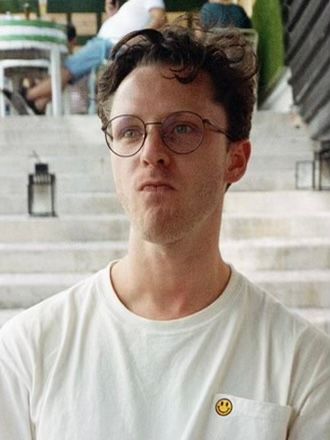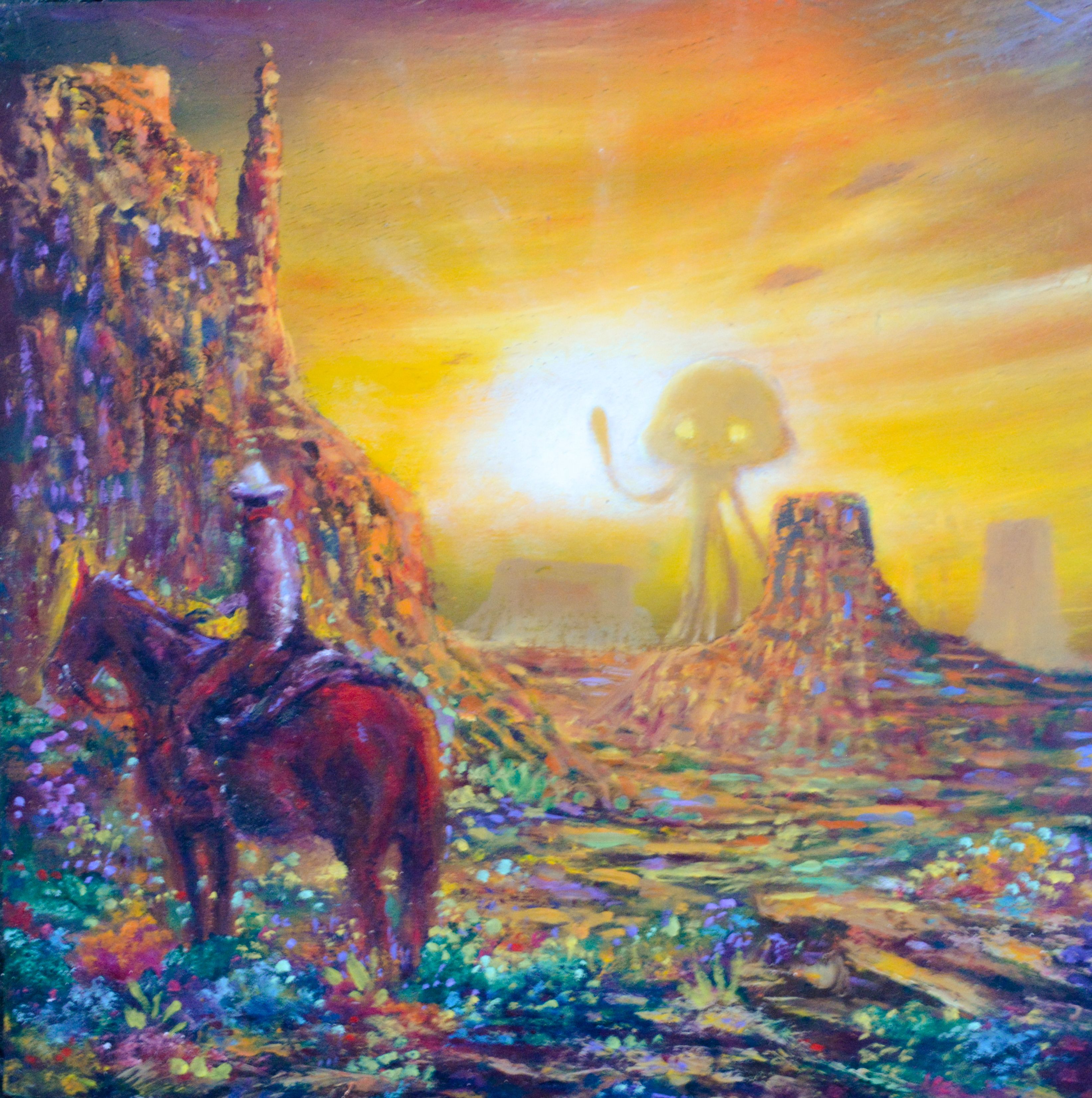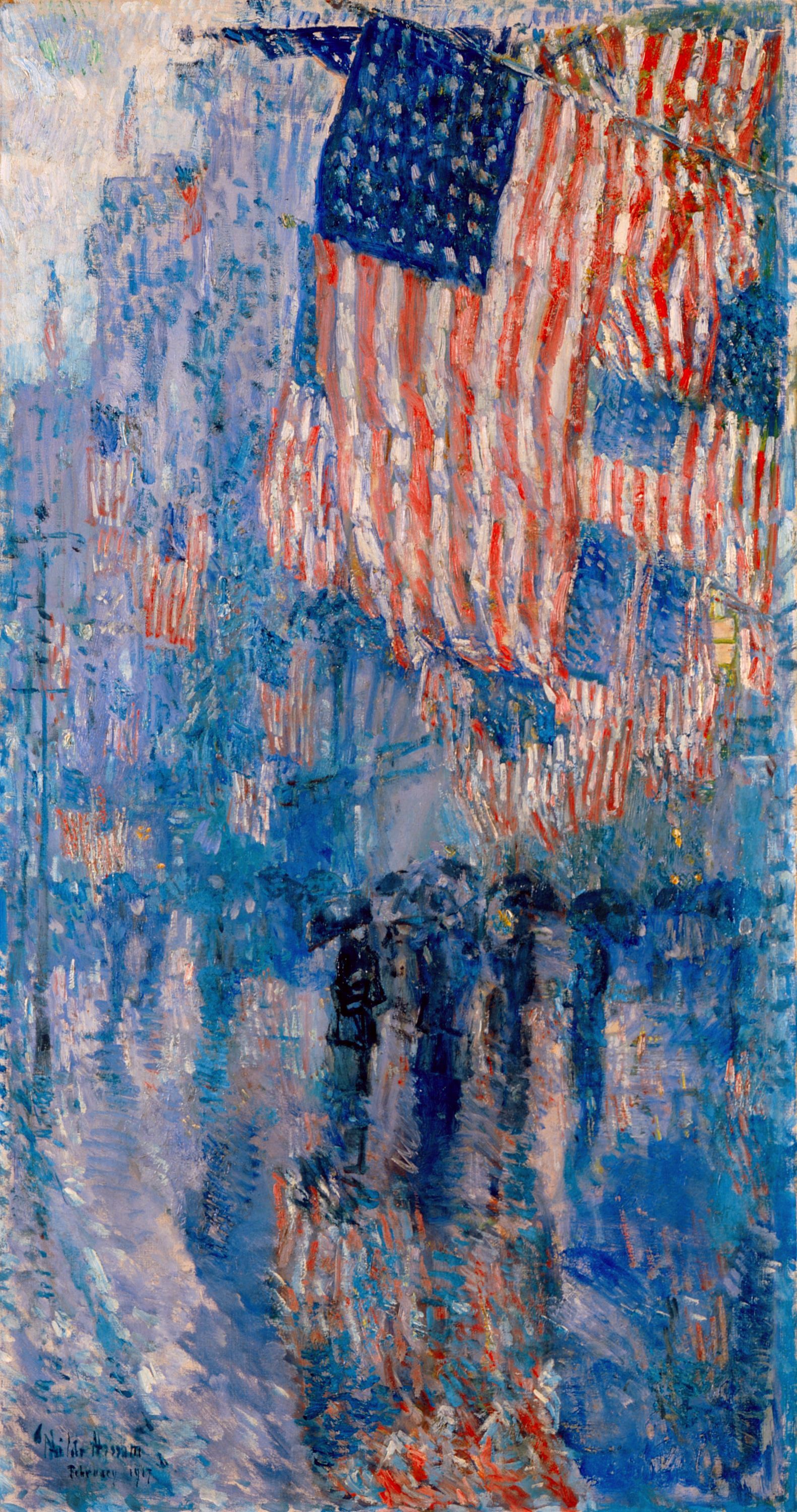Pensé que el universo era un vasto sistema de señales, una conversación entre seres inmensos. Mis actos, el serrucho del grillo, el parpadeo de la estrella, no eran sino pausas y sílabas, frases dispersas de aquel diálogo.
¿ Aguila o Sol ?, Octavio Paz
Contar una historia cambia a quien la cuenta. Y por momentos la ficción es la única manera de pensar lo verdadero.
Los Llanos, Federico Falco
Wow.
It’s crazy to believe that this idea is now almost a reality. I’m still not entirely sure where this will go.. but then I guess, that is also the most fun part of it all.
Firstly, I want to thank you for following Empty Carafes. In a world that prioritizes acceleration and rapidity over everything, whether in the form of the news we read, the television we watch, or the social media we consume (not to mention a world in which everyone believes they have something to say), finding the time to set aside for longform writing can be both challenging as vezes, and inconvenient at others. Time is our most valuable asset, and so in that regard I hope and strive to never waste yours. Even if you may not necessarily agree with everything I say.
This space will take a slightly different form and tone than the pieces shared to Empty Carafes. My hope for these bulletins is that they are to be much more conversational in nature. They’ll be a space where I share a bit of what I’ve been reading and researching recently, along with a collation of thoughts and observations on these subjects. Although I have no particular research or reading ‘focus’ (if you could call it that), my attention usually tends toward reading on capital markets, on language, and literature and poetry.
Though at first glance these subjects all seem like relatively unrelated fields, I’d like to devote this very first bulletin to explain why I believe they are. And.. perhaps in the process, explain in part why I wanted to start Empty Carafes, and why it has slowly morphed and evolved in the past year into what it looks like now. Many of the pieces published and shared here I hope will explore these themes.

Capital markets exist in my belief as a means by which society attempts to solve a connubial set of problems. These being: how can we effectively quantify something that is inherently ineffable - information, and how can we efficiently allocate the limited resources at our disposal. These two problems are mutually axiomatic, meaning we can’t effectively gauge the value of information pertaining to a resource unless we know its availability (or scarcity), and we can’t efficiently allocate resources unless we know the ‘inherent’ value of those resources derived from all of the information available to us. Despite these problems being of a Sisyphean nature, they are ineluctable for a society if it wishes to exist. From this perspective then, looking at a historical price chart of say a company’s equity, or government bond, or a wheat futures contract can be considered a historical proxy-measurement for the dissemination of information across a society. Well.. at least under the purview of the efficient markets theory.
Up until this point in history these deltas of information spread which are comissarily measured through capital markets have been streams that found their headwaters from centralized sources; government institutions, news media, corporations, banks, etc. And this accretion of essential societal functions into centralized institutions has escrowed these entities with immense responsibility, and power. Which, sad to say.. we are ever-increasingly becoming aware of the fact that they have abused, and continue to abuse, again and again and again. We need look no further than the Fox ‘News’ empire’s far-right radicalization of America, or the 2008 financial crisis caused by the wanton greed of Wall Street and ‘systemically important banks’, or Donald Trump’s litany of felonious and treasonous crimes as president to name just a few. But the list of transgressions continues seemingly without end.
And perhaps to go further than this, as people have been told over and over and over again to work more, to work longer, to be ‘a team player’, to take a pay cut; we have seen this same cancerous acceleration of capitalism play out at the vestigial institutional level. Our government bodies are now largely filled with grifters, seditionists, and corporate plants. Our news media is being raided by high finance while journalism dies behind ‘native advertising’, vacuous corporate propaganda, or bombings. Overpriced consultancy firms now ravage government coffers to profit oligarchs while gutting public institutions of taxpayer dollars through their ‘improvement plans.’ And as for the banks.. among their laundry list of atrocities committed against humanity they have abused their power by causing a global financial crisis due to their own greed and stupidity, by charging overdraft fees on struggling families during a global pandemic, and by writing predatory financial products that have financially ruined and caused the bankruptcy of city, county, state, and sovereign governments around the world. Hundreds of billions of dollars that could be put towards healthcare for all … or free higher education for all … or to reverse global warming and clean up our planet, instead going to fill the bottom lines of bank profits and to enrich the few. In fact, the problem of Wall Street writing predatory municipal bonds and adjustable-rate interest swaps became so bad that at one point that the Federal Reserve literally started to host workshops on the matter. I can only imagine how those went over..
“Come join us for a shitty cup of coffee and an absolute brick of a biscuit while we tell you how to cope with the ways you have been absolutely fucked by our colleagues and former employers.”
But then I guess it is easy to mistake to intelligence what is simply a lack of morals when the cosmogony of our current society is largely driven by a zero-sum game in which the goal is to see how many more zeroes one can add to the end of their personal ‘N3t W0rTh’.
However.. I say all of these things not as a doom-and-gloom, woe-is-us, impotent diatribe about the current state of the world. Nor as a subliminal argument for guillotines and revolution. I say these things as a simple acknowledgement of the current state of affairs in the world; a state that not just me, but many are aware of.. And much more than I, are actively working to change.
Whilst vestigial old-power institutions attempt to maintain their hegemonies by positioning themselves to either control or regulate new technologies, the best and brightest are tripping over themselves to work on projects in emerging spaces like Web 3.0, DAOs, and DeFi - building projects such as decentralized markets, decentralized currencies, and decentralized crowdfunding. All collectively laying the foundation for a truly ‘decentralized’ future; supported and validated by publicly-accessible blockchain ledgers. In turn cutting out the dinosauric middlemen and institutions that have abused their societal responsibilities for personal profit at the expense of the world and everyone living on it.
Despite the fact it may be nerve-racking to think of placing trust in a system that is decentralized, especially when one has only ever known a status quo that is centralized, it shouldn’t be. Well.. at least not as nerve-wracking as one should think it be. Though there exist legitimate concerns regarding decentralized systems in general, just as there are those who are tripping over themselves to build these infrastructures, there are people and organizations who are working vigilantly to protect and debug these nascent systems until they are ready for widespread adoption. Meanwhile there are yet others who are already beginning to model what the future of governance will look like for these systems. To which.. if you are so inclined, you can find a wealth of wonderful information regarding governance in a decentralized system from these papers here, here, and here.
For the purposes of this bulletin however, I want to focus on one specific paper, which you can find here. In particular there are two sections I want to highlight, which I’ve also added below.
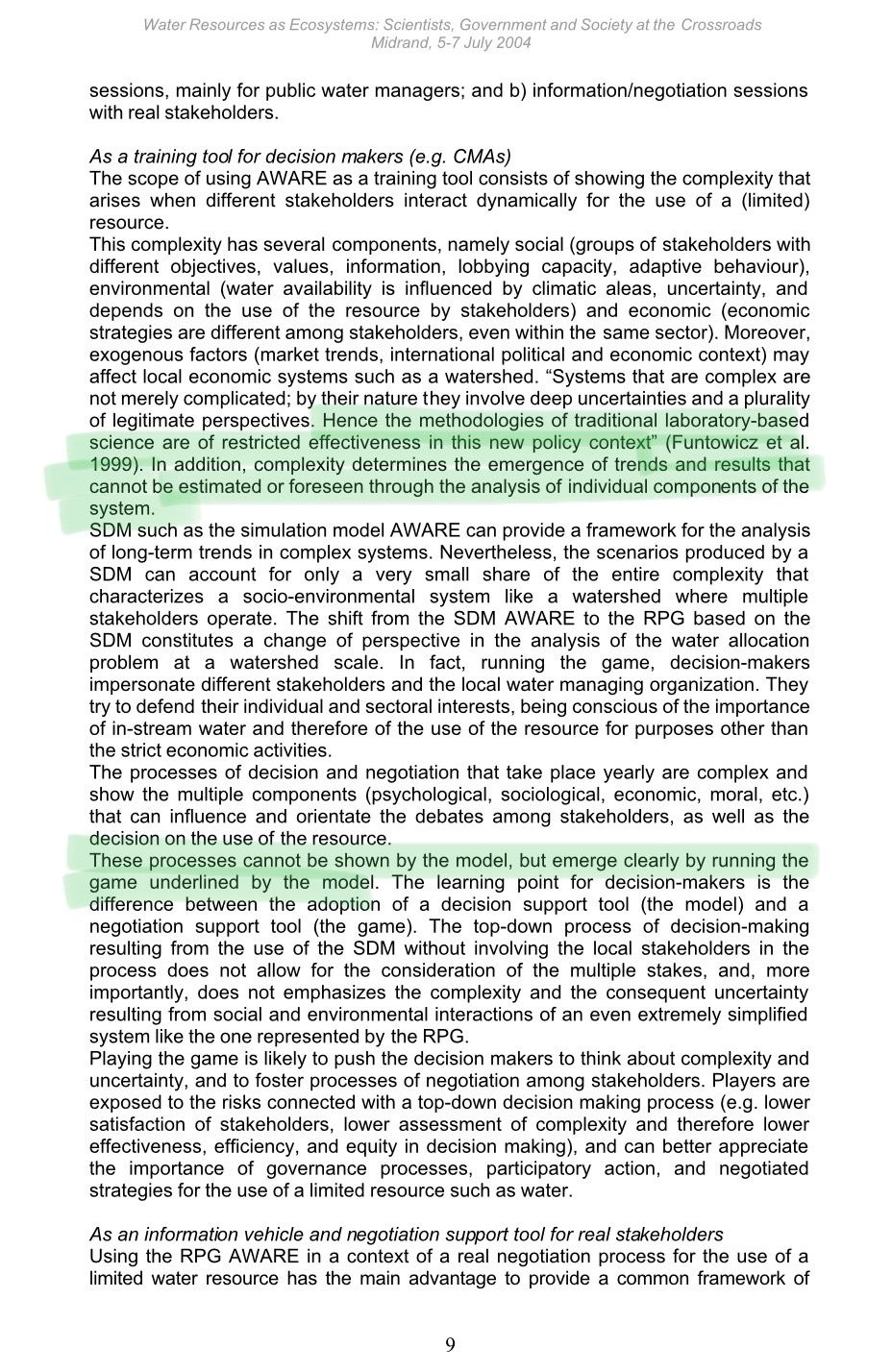
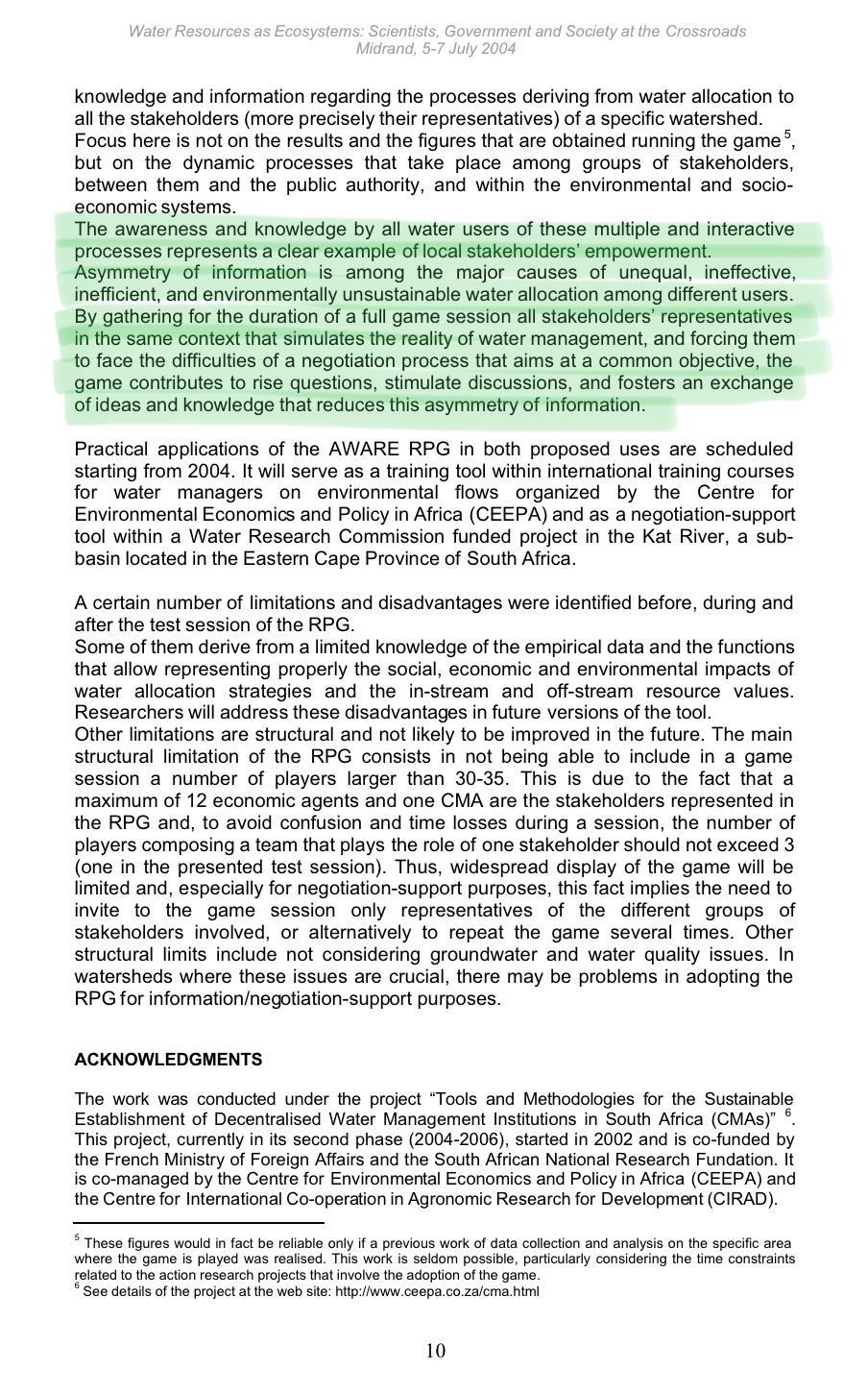
In 1998, following decades of natural resource mismanagement, the South African government enacted a new national water act which provided a framework to build a decentralized system of water resource management. A few years later researchers from the University of Pretoria published the results of a role-playing game they had designed to model the outcomes from a decentralized system where stake-holders at every level participated in the negotiation process.
What the researchers discovered through running the game was that despite their best efforts, no amount of laboratory testing, nor predictive modeling, could accurately foresee how the game would play out. However, once the game began, ‘clear processes emerged’ in the decision-making process. As for the conclusions the researchers drew from the game, they noted that ‘asymmetry of information’ was one of the greatest causes of inefficient and unequal distribution of resources.
And.. looking at the world we live in now, we are seeing this exact paradigm play out, right before our very eyes. If we return to the highlighted paragraph on page 10, and simply replace the word ‘water’ with ‘capital,’ we explain exactly the current state of global affairs, and it is for this reason why bloated, antiquated, centralized institutions fight so hard to keep this asymmetry alive. Because they profit from it. It is why Big Tech fights so venomously against any sort of online privacy rights, meanwhile operating under obfuscating haziness. It is why the amount of government ‘secrets’ has skyrocketed under the passing of the Patriot Act and why agencies like the NSA are so broad-reaching, all the while violently cracking down on whistleblowers like Edward Snowden and Bradley Manning. It is why big finance opposes any sort of financial regulatory oversight, while at the same time exploiting tactics like Payment-for-order-Flow to take advantage of retail traders. And it is for this reason why in an age where almost every one of us carries the entire library of human knowledge in our pockets, we find ourselves more misinformed than ever.
Because none of it is by accident. All of it is by design.
But again I digress (which.. in my defense, is quite easy to do when talking about the atrocities that TradFi, Big Tech, and crony-corporatism have committed against the world). What I wanted to demonstrate with the last few paragraphs (beyond proffering a supporting clause for a tangential argument for decentralized-participatory systems) was to adduce the ingenuity and power of language, and demonstrate its Icarian limitations. Because by simply changing the word from ‘water’ to ‘capital’ in that excerpt we are confronted by the paradox of language. On the one hand, language can be used with incredible nuance and versatility to describe even the most ineffable ideas, but on the other, it will always inevitably fall short of relating the exact concept or idea it attempts to convey. For the former is an act of expression, but the latter can only be acquired through self-realization. The existence of different idioms and expressions between languages, different translations of texts from the same literary source, and words that have no direct translations in other languages all pay respect to this truth. In most instances though, the gap between idea and the language used to describe it is far more distant, and its boundaries far more blurred, than the example shown above.
All of this I feel leads us naturally to the topic of literature and poetry in this bulletin. And although there have been far more unsolicited opinions given and voluminous English PhD dissertations written on the subject than one could ever be bothered to attend to, I’ll briefly add my thoughts here. Solely within the framework of this bulletin. If you’ll allow me to be so shrewd.
If we view capital markets as a consideration of information through the kaleidoscope of utility and quantitative value, and language and its grammar structures as the means by which we attempt to communicate information, then literature and poetry (and on the whole.. art) are quite simply the way we seek to humanize it, both in its circumstance and it’s intent. Because books are nothing less than the tools by which we communicate language through time; the vehicles in which we shepherd information through the ages. Yet if they were solely this, that they only served this utilitarian purpose, then the books we would consider as ‘classics’.. the ‘greats’, would be nothing more than a laundry list of historical records and nonfiction accounts. But they’re not - the great books, the ones that have stood the test of time, are those that explored and stretched language to their contemporaneous limits, in an effort to speak to the human experience. They, literature and poetry and art, take that entire experience, all of that information, and through the process of creative expression attempt to find some deeper understanding of it all. As the author Lawrence Durrell so eloquently put it:
“A novel should be a divination by entrails, not a careful record of a game of pat-ball on some vicarage lawn.”
Reflecting on all this, these demonstrations speak to a universal constant, and a far deeper underlying facet of this discourse. For writing novels, or literature, or any fiction for that matter, is not a utilitarian act. It is deontological. Writing (and also making art) doesn’t humanize information because that is its end goal. Writing humanizes information because it is the expression of said information through the lens of our experience of it. It is the act of play through the process of creation. And personally I can’t think of anything more essentially, more delightfully, more unequivocally human than play in what in its very essence makes us human.
In this very process however, is both an admission, and a submission. These words, on the contrary to their utilitarian counterparts, simply exist. They do not ask anything of anyone. In this way, when the author Joan Didion says the following:
“In many ways, writing is the act of saying I, of imposing oneself upon other people, of saying listen to me, see it my way, change your mind. It’s an aggressive, even a hostile act. You can disguise its aggressiveness all you want with veils of subordinate clauses and qualifiers and tentative subjunctives, with ellipses and evasions — with the whole manner of intimating rather than claiming, of alluding rather than stating — but there’s no getting around the fact that setting words on paper is the tactic of a secret bully, an invasion, an imposition of the writer’s sensibility on the reader’s most private space.”
in her book “Let Me Tell You What I Mean,” I have to disagree. I don’t find it an invasion. For no matter how one dresses it up or strips it down; through subordinate clauses or tentative subjunctives or sophisticated typefaces or aesthetic design elements, the only time a writer’s words can enter a reader’s most private space is through the continual consent from the reader to the words laid out on the page. And I’m sure everyone who’s ever read anything has at some point put down a book or newspaper or article for how poor or illogical or awful the writing was. Or picked one up simply because of its cover art.
In this area I am much more of the same mind as Toni Morrison, which she explained in an interview with The Paris Review a few years back.
Interviewer: “Do you write to figure out exactly how you feel about a subject?”
Morrison: “No. I know how I feel. My feelings are the results of prejudices and convictions just like everybody else’s. But I am interested in the complexity, the vulnerability of an idea. It is not “this is what I believe” because that would not be a book, just a tract. A book is “this may be what I believe, but suppose I am wrong … what could it be?” Or “I don’t know what it is, but I am interested in finding out what it might mean to me, as well as to other people.”
But alas.. as much as I would love nothing more than to sit down with the both of them and, perhaps over a coffee and a sneaky cigarette, discuss the finer nuances of diction and syntax in the construction of arguments, or the portrayal of ideas, I can’t. For both of them are passed now, and all that remains of them are their words and their books, hoping some reader comes along and invites them inside.
For ultimately, if I had the power to effect change in any of the systems I’ve spoken about above I probably wouldn’t be here. I am just a writer; one who reads far too much for his mental health, and smokes near too for his physical. All I can do is hope that the words and art shared here make you feel happy or upset or angry or conflicted. I hope that at times they make you feel disgusted or uncomfortable, and I hope they make you laugh (at least sometimes). I hope they make you ask questions and reconsider your preconceptions, to look for connections in fields you may not have thought were connected. Because in the end, it is one thing to read research papers on monetary policy, or see statistics on widening income inequalities, or news reports on climate change. And it is another thing entirely to read the story of a family having their home taken from them due to a predatory mortgage, or see the few native and wild lands remaining being strip-mined and clear-cut for next quarter’s profits, or listen to a conta of a couple watching their hard-fought-for world come crashing down due to a global pandemic, all the while their elected leaders squabble over whether to insult them with a stimulus check worth pennies. Then blame them for causing inflation.
But above all, I hope that the words and the art shared here make you feel something. Because life, just like our soon-to-be markets, is decentralized. Life is a decentralized system, and no amount of double-blind studies, nor controlling for variables, nor literature reviews can prepare one for every eventuality. All one can do in the end is simply play the game.. step into the ring.. and amongst the guts and entrails try to make sense of it all, using all of the information available to us. And there are far more ways to communicate information than simply words laid out on a page.
And so with all of this.. and with my goal for this first bulletin I feel sufficiently achieved, I’d like to finish up this piece with one more quote, and perhaps one more sumptuously unattainable goal for this publication, again from Lawrence Durrell. And.. if you’ll allow me to be so shrewd once more, we can add one more cambia de palabras to this here quote, by replacing the word ’write’ with ‘create.’
“Like the dead Pursewarden I hoped I might soon be truthfully able to say: ‘I do not write for those who have never asked themselves this question: at what point does real life begin?’”
Thank you for your time, and welcome to Empty Carafes.
